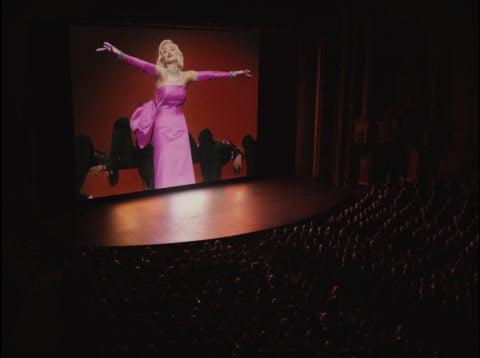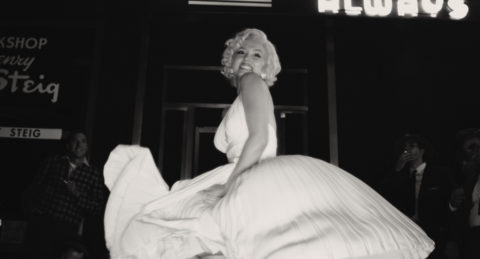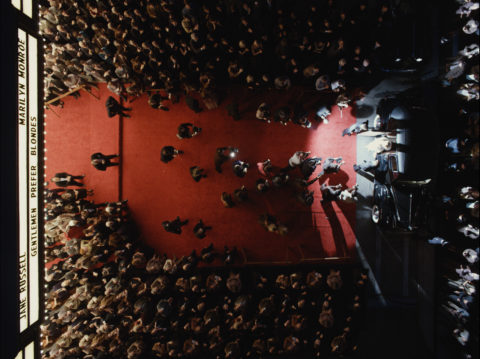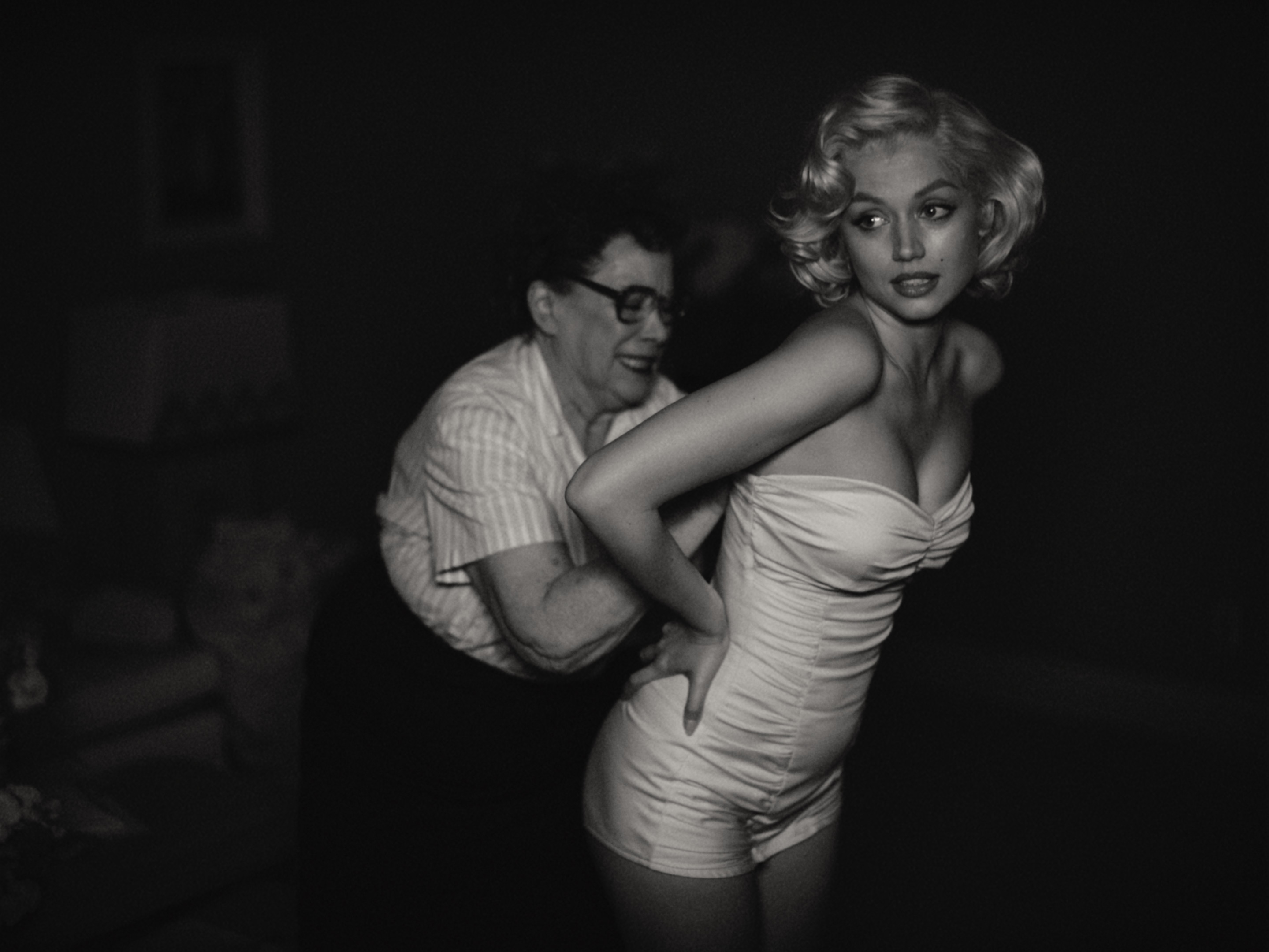Netflix’s highly anticipated Marilyn Monroe biopic imagines her life through her most famous looks.
In the 60 years since Marilyn Monroe’s death, her larger-than-life persona has been referenced, replicated and retold countless times. Hollywood can’t seem to stop producing content about her, and we can’t seem to look away. But unlike most of its predecessors, Netflix’s Blonde — streaming globally on September 28 — isn’t interested in getting to the bottom of her story. Instead, it plops her recognizable body of work into a fantasy.

Based on Joyce Carol Oates’s 1999 fictional biography, the movie Blonde (directed by Andrew Dominik) is an aesthetic ode to Monroe’s image, not her real life. Starring Ana de Armas as the ’60s bombshell, it covers her ascension to stardom and the events that led to her untimely death.
“I’m not interested in reality, I’m interested in the images,” Dominik told the British Film Institute about the making of the movie. “So I selected every image of Marilyn I could find and then tried to stage scenes around those images.” Using these pictures and movie clips as inspiration, Dominik shot the film based on the way the world collectively remembers Monroe.

Still, there’s one aspect of the film that sticks to reality: the wardrobe. Unlike the fictionalized plot, Blonde’s costumes are faithful replicas. Costume designer Jennifer Johnson reportedly studied Monroe’s outfits in films and photographs to understand exactly how each piece moved. The result? A sartorial ode to the actress’s iconic ensembles — from the hot pink gown featured in her performance of “Diamonds Are a Girl’s Best Friend” to the pleated white halter dress she wore to stand over the subway grate in The Seven Year Itch.

Whether intentional or not, this collision of fictional plot and realistic wardrobe becomes a commentary on our rose-coloured perception of the superstar, which has usurped any genuine interest in getting to know her. Blonde may be fiction. But so is our concept of Marilyn Monroe. The further away we move from her real-life existence, the more manufactured, hyper-glamourized and unattainable she becomes — and the less chance we have of ever knowing who she really was. As Emily Kirkpatrick writes in The Cut: “Monroe is no longer a person but a void that members of the public can fill with their own vague desires.”
In reducing Marilyn Monroe to a costume, Blonde reflects her modern status as a romanticized, mythical entity — which might just be the most meaningful depiction yet. After all, harsh truths often lie just beyond the flashiest distractions. Below, see the detailed costumes featured in Netflix’s Blonde.
